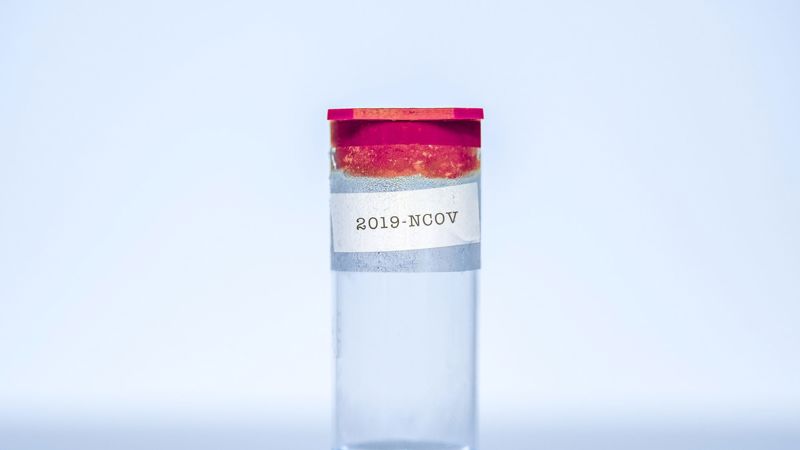
Finally, some good news – the vaccines are coming, and it looks as if they work. By all accounts the science is ground-breaking, and the speed is extraordinary. Some have argued that this demonstrates the importance of “Big Pharma” in developing the vaccines, and point to the success of the free market in delivering these new products.
But if it was simply about Big Pharma and the free market, why is it that there have been such concerns over recent years about the lack of new antibiotics in response to increased microbial resistance to existing treatments? Why is there still no AIDS vaccine?
Some of this undoubtedly relates to the scientific difficulties of finding workable products. As an economist, this is way beyond my expertise. However, I would point to certain economic features of the Covid-19 crisis and the public policy in place that are likely to have speeded up the rate of innovation in this case.
First, it is trite to say that the Covid-19 pandemic has had an enormous effect on mortality and the world economy. At the time of writing, there have been over 56m recorded cases and 1.35m attributed deaths. Health services have been in danger of being overwhelmed, and in response many governments have instituted lockdowns, which have had dramatic economic effects. In Q2 2020, the economy in the UK and Spain shrank by more than 20% year on year. Other leading economies saw similarly dramatic if smaller falls in that quarter (e.g. Germany -11.7%, USA -9.5%). So the status quo is not remotely an attractive option in the medium term.
The consequence of this immediate and substantial threat has been substantial acceptance of innovation risk by governments, contrary to the usual approach. The standard model of pharmaceutical remuneration involves companies taking the risk of innovation, in return for a profitable period under patent protection. If the research fails, has excessive side effects, is not a material improvement on existing drugs, or lags behind a competitor, then the innovating company will likely fail to recoup its investment. In the normal course of events, this approach largely places the risk of innovation on pharmaceutical companies, with health services aiming to ensure that they get best value for the taxpayer.
However, given the massive and urgent threat of Covid-19, governments have been willing to take on a much greater share of the innovation risk by pre-ordering vaccines before they know that they are going to be successful. For instance, the UK has pre-ordered 340 million doses of different types of vaccines before they know whether those vaccines are going to be successful, as follows:
a. Adenovirus vaccines—100 million doses being developed by Oxford University (through AstraZeneca) and 30 million doses from Janssen
b. mRNA vaccines—30 million doses from BioNTech/Pfizer
c. Protein adjuvant vaccine—60 million doses from GSK/Sanofi Pasteur and 60 million doses from Novavax
d. Whole inactivated virus vaccine—60 million doses from Valneva, with an option to acquire a further 40 million doses if the vaccine proves safe and effective.
Other governments have employed similar approaches – with the US having pre-ordered around 800m doses of vaccine. The scale and urgency of the crisis has also overcome to some extent the free-rider effects that would otherwise likely dampen the incentive for governments to invest in this fashion.
This approach has substantially de-risked the innovation process for pharmaceutical products, which has had multiple beneficial effects on the rate of innovation. It has incentivised pharmaceutical companies to develop multiple approaches simultaneously – letting a thousand flowers bloom, in order to find those that work, while letting the government take the risk of those that do not or are less effective. It has also allowed the pharmaceutical companies to progress the vaccines through the necessary regulatory clearance stages more quickly, continuing with testing while seeking regulatory clearance in parallel, rather than sequentially.
So yes, the science is amazing. And yes, Big (and small) Pharma have delivered vaccines incredibly quickly. But a triumph for the free market? Not quite. Rather, it points to the importance of government policy in setting the right framework for innovation incentives, to then harness the energy and creativity of the market.
What does this tell us about the quest for new antibiotics? Well, it seems likely that there would be faster progress in developing new antibiotics were governments to take on more of the risks of development (and there is some funding already available, although on a much smaller scale than for Covid-19). However, this is not a free lunch. It seems pretty likely at this stage that the money spent on supporting vaccine development to combat the Covid-19 threat will prove to have been extremely well-spent given the scale and urgency of the problem. Is antibiotic resistance a problem of a similar scale? Seemingly not yet, at least from the perspective of governments (the World Health Organisation might beg to differ). But perhaps when the threat looms (even) more urgently, governments will be able to reach for the Covid-19 policy playbook to accelerate the level of innovation in response.







